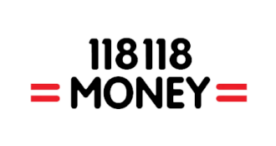Many or all of the products and brands we promote and feature including our ‘Partner Spotlights’ are from our partners who compensate us. However, this does not influence our editorial opinion found in articles, reviews and our ‘Best’ tables. Our opinion is our own. Read more on our methodology here.
About Credit Cards
Credit cards can be used for a variety of reasons, whether that’s buying an expensive item or paying for a holiday. When you spend with a credit card, you can opt to delay payment and spread the cost of your purchase over a longer period. This flexible way of spending comes with many advantages, as long as you use the card responsibly and make your payments on time.
There are many different types of credit card that are designed for different purposes and spending habits. For example, you can find credit card deals if you want to build up your credit history, to transfer a balance from an existing card, to get cashback and other rewards, or simply to spend with. The interest you are charged will depend on the card you get, your credit score, and whether you repay your balance in full before interest fees apply.
Before deciding to get a credit card and comparing the products on the market, you should understand how credit cards work, the types of cards on offer, and what interest fees and other charges may apply. To help you work out whether a credit card is the best option for you, you can read more about credit cards below.
The credit cards eligibility service is provided by Aro. The data you supply and submit to Aro is used to retrieve credit card quotes from Aro’s panel of lenders. By using their credit card eligibility service you are agreeing to Aro’s terms and conditions and privacy policy which can be found at www.aro.co.uk.
What is a credit card?
A credit card is one way you can borrow money to pay for goods and services. They can be helpful if you want to defer payment or spread the cost of an expensive purchase, for example.
The credit card company will provide you with a credit limit, which is the maximum amount you can spend on the card. You will then need to repay the card balance at a later date.
You have to make at least the minimum payments required and, depending on the type of card, you may need to pay interest.
How do credit cards work?
When you spend with a credit card, the card provider is effectively lending you the money to pay for the goods or services, which you will then repay later. You have a credit limit, which is the maximum amount you can spend on the card.
A basic credit card transaction works like this:
- You use your card to spend online or in-person, just like any other type of payment card.
- As long as the transaction is approved, the credit card company sends the money over.
- You now need to pay the credit company for this amount, plus any interest. The amount you owe will be detailed on your credit card statement.
- With most cards, you need to make at least the minimum repayment each month. This will be at least 1% of your outstanding credit card balance plus other charges, but providers may set it at a higher percentage.
Unless you pay off your balance every month or have an interest-free period with your card, the provider will charge you interest on your credit card. The rate of interest will vary between individuals and will depend on your credit history, among other factors.
Credit cards may come with other fees and charges – if you use the card to withdraw cash, for example.
» MORE: How do credit cards work?
Types of credit card
There are a number of different credit cards available, each with their own features and benefits. Some of the main types include:
0% purchase card
0% purchase credit cards are interest-free for a set period, which can be useful if you want to pay for a high-cost item. If you repay the balance before the 0% interest period ends, you won’t pay any interest. However, interest charges will apply after this period expires.
Balance transfer credit card
You can move the amount of debt left outstanding on an existing credit card to a balance transfer card to save money on interest. You will be charged a fee to do this, but balance transfer cards typically come with a 0% interest period. As long as you pay off the balance before this period ends, you won’t pay any interest. You may not be able to transfer balances between cards from the same provider.
Money transfer card
This kind of card allows you to transfer cash into your bank account, for a fee. Bear in mind that providers may not allow you to use your card to repay any other types of credit you may have taken out with them.
Rewards credit card
Some credit cards come with different reward schemes, which can offer certain perks when you spend with the card. For example, with a rewards credit card, you may earn points which you can then redeem at supermarkets, high street shops, leisure and entertainment providers, airlines, and more. The rewards available will vary between credit cards.
Cashback credit card
With a cashback card, you can earn cash when you spend. Providers will set their own rules, as some may only offer cashback when you spend on certain items or over a specific amount. With these cards, it’s important to not spend more than you would normally just to get the cashback reward, as this would cancel out any benefits the cashback may bring.
Credit builder card
Credit builder cards can help those with a poor or limited credit history who may struggle to access a standard credit card. They are designed to help you build up your credit history and help you qualify for more credit options in the future. These cards typically come with higher interest rates and lower credit limits, but you may be able to increase your limit if you prove you can make repayments on time.
Travel credit card
Travel credit cards are designed for spending abroad. While standard credit cards are likely to charge fees when you use your card outside the UK, travel credit cards will often come with lower fees, if any. This means they would be a cheaper option if you want to use a credit card overseas.
Can I get a credit card with bad credit?
It is possible to get a credit card if you have a bad credit history or a limited credit history. There are specialist credit cards for people with poor credit, so these may be an option if you don’t qualify for a standard card.
Bear in mind that you are likely to be charged a higher rate of interest and have a lower credit limit if you have poor credit.
However, if you make your payments on time, you may be able to increase your credit limit. This would also help you to improve your credit score, which could help you to access more competitive credit cards or other forms of borrowing in the future.
What are the pros and cons of getting a credit card?
Before getting a credit card, it’s important to be aware of their benefits as well as their potential disadvantages.
Advantages of using a credit card
Credit cards can be useful and have a number of advantages, such as:
- They can sometimes be cheaper than other forms of borrowing, IF you pay off your balance in full each month or before the interest-free period expires (if applicable).
- You can use the card to spread the cost of purchases or to pay for any emergency costs if you don’t have the cash immediately available in your bank account, but know it is coming.
- For any purchase you make on your credit card over £100 and up to £30,000, you will have protection under Section 75 of the Consumer Credit Act. This means that if you have a problem with any goods or services you bought with the card, you may be eligible to claim a refund from your credit card provider.
- Some cards may offer cashback or other rewards when you spend, though these shouldn’t be the main reason for choosing a particular card.
- If you make your credit card repayments on time, you can improve your credit score.
Disadvantages of credit cards
However, there are some disadvantages to consider if you plan on getting a credit card.
- They can come with high interest rates if you only make the minimum payments and don’t clear your balance each month (or before your 0% interest deal ends). Interest can add up if you don’t keep on top of your repayments, which could put you at risk of falling into unmanageable debt.
- Credit cards make it easier to spend, so they can be risky and exacerbate existing problems if you’re already struggling with debt, for example.
- Some providers may charge fees, so always check what charges may apply.
- If you don’t have a specialist travel credit card, they can be expensive to use abroad.
- Late or missed payments can damage your credit score and make it more difficult to access credit in the future.
How to choose the best credit card for you
When you come to choose a credit card, the variety of options available can be quite overwhelming. It’s important to research what the best credit card is for you, making sure to consider the following points:
- Why do you want the card and what will you use it for? Do you want it to spread the cost of a major purchase? To transfer debt from another credit card? To use abroad? To build up credit? Whatever the reason, make sure you get the credit card that is best suited to do what you want.
- Check the interest rate on the card. Bear in mind that only 51% of successful applicants are guaranteed to get the advertised representative APR. The remaining 49% can be charged a higher rate.
- If applicable, don’t just look at the introductory interest rate. Make sure you look at what the interest would be after the initial lower rate ends.
- Look out for any extra credit card fees. For example, some providers may charge an annual fee and many will charge a fee for withdrawing cash from your card, so make sure you’re aware of these potential extra costs.
- Check the terms of any cashback or reward schemes. You will typically have to meet certain requirements to benefit from any offers, so make sure you look at the terms and assess how useful these schemes are for you.
- Make sure you know what the minimum payments would be.
» MORE: How to choose a credit card
How to apply for a credit card
If you’ve decided that you want a credit card and you know which kind of card best meets your requirements, the next step is to apply.
As part of your credit card application, you will need to give the provider information, such as your:
- name
- address
- contact details
- date of birth
- income details
- employment status
In some cases, the provider may want to see some supporting documents such as your driving licence for proof of ID.
When you apply for a credit card, the provider will conduct a hard credit check to assess how well you have managed credit and your finances in the past.
This information will help the provider to decide whether to approve your application and, if successful, what interest rate and credit limit you are eligible for.
Applying for a credit card will leave a mark on your credit history, so it’s worth checking your eligibility before submitting a formal application.
Checking your eligibility won’t affect your credit score.
Credit Card FAQs
With a credit card, you can borrow money to pay for something and repay it over a period of time. Depending on the type of credit card you have and how long it takes to repay, you may be charged interest.
Credit cards can be used for a range of purposes. You can use a credit card to buy goods, to pay for holidays and other services, to build up credit, to transfer a balance from an existing card, and more. Different cards will be designed for different purposes, so choose the one that’s most suited to your requirements.
Only you can decide if a credit card is right for you. If you can afford to pay off the card without racking up a lot of interest, then they can be a useful way to borrow money and spread the cost of purchases. However, if you think you may struggle to manage your finances and repayments effectively, a credit card may not be the most suitable option as there is a risk of falling into expensive debt.
» MORE: Do I need a credit card?
Each provider has their own eligibility criteria, but as a rule you will need to live in the UK and be at least 18 years old to get a credit card. Some providers may only offer cards to people aged 21 and above. Other requirements will vary between providers, with some setting minimum income levels for example. You can check your eligibility for a credit card to see what cards you qualify for.
Yes, all credit card providers will run a hard credit check as part of their application process. If you check your eligibility for a card, this will only involve a soft check and won’t affect your credit score.
This depends on the kind of credit card you have, the interest rate on the card and whether you pay off the balance each month. If you clear your balance before interest charges apply, credit cards may not cost you anything at all.
However, if you only make partial payments or the minimum payments, interest can pile up and make credit cards an expensive option.
Bear in mind that credit cards may also charge other fees for cash withdrawals, going over your credit limit, and more.
The minimum payment is the amount a credit card issuer requires you to repay on to your card each month. This will be at least 1% of your outstanding card balance plus other charges, but may be more. If you miss this minimum payment, you could face a penalty, as well as more interest charges, and your credit score could be affected. Ideally, you would repay your balance in full each month in order to avoid paying interest on your balance.
The credit limit offered by a credit card issuer will depend on your financial situation and your credit history. The better your credit score, the higher the credit limit you are likely to qualify for.
APR stands for annual percentage rate, and it tells you how much it will cost you in total to borrow on the credit card over the course of a year, taking into account the interest rate and other fees. Credit card APR figures are based on a number of assumptions. The cost of borrowing is worked out by assuming a credit limit of £1,200, that you spend the entire amount on day one, repay it in equal instalments over one year and don’t borrow any more on the card.
While APRs allow you to compare cards on a like-for-like basis, not everyone will use their card in this way so you may end up paying more or less than the APR.
As well as the interest charges, credit cards may come with other costs. For example, there may be late payment fees, fees for going over your credit limit, fees for cash withdrawals, and fees to transfer a balance from another credit card. Some providers may also charge annual fees to use the card. Before taking out a credit card, make sure you’re aware of all the extra fees that the provider could charge.
If your credit card application is rejected, don’t try to apply for a new card straightaway as this may harm your credit score. Before applying again, try to understand why the provider declined your application so you don’t make the same mistake twice and so you can try to improve your chances of approval the next time.
You should make sure you only apply for cards if you meet their criteria, and it’s also worth checking your eligibility for a credit card before formally applying for one. This reduces your chances of having your application rejected.
Once your credit card application is approved, it will normally take several working days to receive your credit card in the post. This timescale will vary between providers.
There is no limit to the number of credit cards you can have, so you can have more than one card. However, it’s up to individual providers whether they decide to approve your application for a credit card if you already have one or more cards.
Whether you can get multiple credit cards depends on your financial situation and how you use your existing card(s). For example, if you have one or more maxed-out credit cards or have too much available credit, you may find it more difficult to get a new card.
Bear in mind that having multiple credit cards could increase the risk of overspending and getting behind on your repayments.
Yes, you can cancel a credit card if you no longer want it. You’ll need to pay off the outstanding balance left on your card and contact your provider to say you want to cancel it.
In the UK, you can’t get a joint credit card. However, while a credit card account can only be in the name of one person, you can add additional card holders.
The named cardholder will be legally liable for repaying the debts on their credit card account, even if it was a different cardholder that ran up the debt. As a result, make sure you only give additional cards to people you can trust.
Helpful links for credit card issues
Money Advice Service – The government’s Money Advice Service website provides concise, unbiased information on choosing and using credit cards as well as handy tools such as credit card calculators.
The UK Cards Association – The British trade association for card payment companies has an extensive range of guides on their website covering all the types of payment cards available to UK consumers including debt, credit and prepaid cards
Financial Fraud Action (FFA) UK – The Financial Fraud Action website features important advice on using payment cards safely and securely as well as information on the latest scams.
Financial Ombudsman Service – If you’ve already made a complaint to your card provider and have not had your issue resolved satisfactorily then the next step is to take up your complaint with the Financial Ombudsman.
Latest articles

Why Do I Have No Credit Score?
There are many reasons why you might not have a credit history. Read on to find out what to do if you don’t have one and simple ways to start building your credit score.

Advantages and Disadvantages of Credit Cards
It’s important to know the potential advantages and disadvantages of credit cards before applying for one. Even though credit cards can be useful, there are some risks to be aware of too.

6 Things to Consider Before Getting a Credit Card
Credit card borrowing is on the rise, at a time when many UK households are struggling to cope with the increasing cost of living. But before taking out a credit card or any other form of credit, you need to consider these key points to help you decide if it’s right for you.





